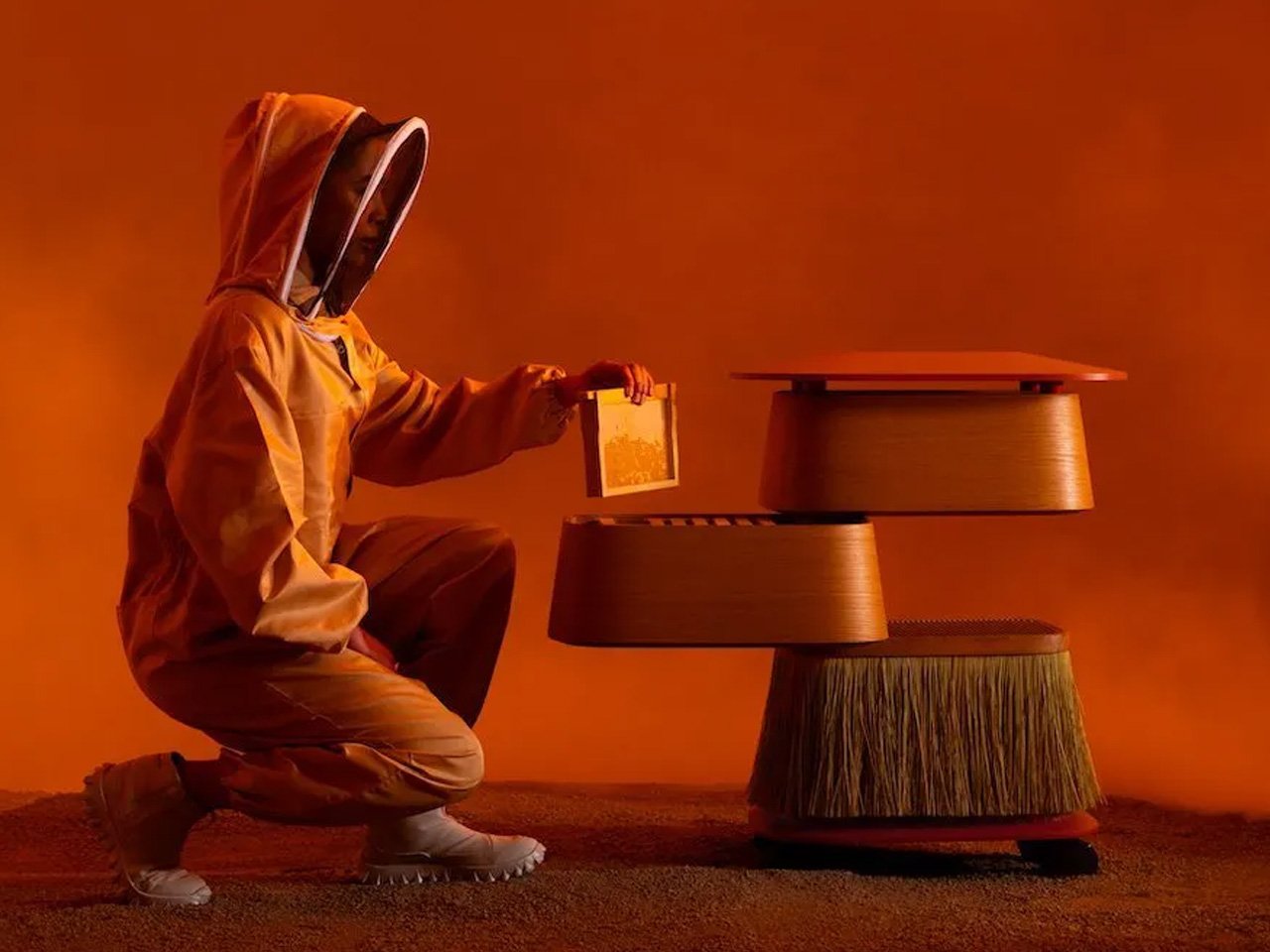Cities rarely make room for bees. Between glass towers and concrete sidewalks, there’s little space for the hollow stems and wood cavities that native pollinators need to build their homes. LAYER’s HOST, unveiled at Milano Design Week 2025, changes that conversation entirely. This modular bee hive, created with Andreu World, brings something unexpected to urban landscapes—thoughtful architecture designed for creatures other than ourselves.
HOST isn’t a traditional beehive. Those house busy honey bee colonies with their complex social structures and honey production. This structure serves solitary native bees, independent creatures that work alone, each female building her own nest and raising her offspring without workers or queens. These solitary species often outperform honey bees at pollinating local plants, making them essential for healthy urban ecosystems.
Designer: LAYER
The modular design reveals careful thinking about how cities work. Stackable components mean the structure can grow from a single unit on a small balcony to a towering installation in a public park. Each layer creates protected nesting spaces, shaped to shield bees from rain, wind, and urban noise. The sloping surfaces drain water naturally while insulating materials keep developing larvae at the right temperature.
HOST considers both species using it. The swivel-out modules let people check on their bee residents or harvest honey without disturbing the colony. You can maintain the habitat without stressing the inhabitants, a balance that respects both human curiosity and bee wellbeing. The sculptural quality matters too. HOST doesn’t hide in corners like typical bee hotels. Its presence in city spaces tells a story about what cities could become when we design for more than just human needs. The structure becomes a conversation starter, making usually invisible pollinators part of the urban visual landscape.
This isn’t just a unique and fascinating idea; it represents a real shift in how design industries think about their impact. Companies are starting to understand that supporting biodiversity isn’t just good PR; it’s necessary for healthy cities. HOST shows how beautiful, functional design can actively contribute to environmental health rather than just avoiding damage.
The timing feels right. Urban gardeners and city planners increasingly recognize that native pollinators need our help. Traditional beekeeping focuses on honey production, but bee hotels support the wild species that pollinate most of our food crops and maintain plant diversity. HOST makes supporting these creatures as simple as installing a piece of outdoor furniture—one that happens to serve life beyond our comfort.
The post This Modular Bee Hive By Layer Is Bringing Biodiversity Back to the City first appeared on Yanko Design.

